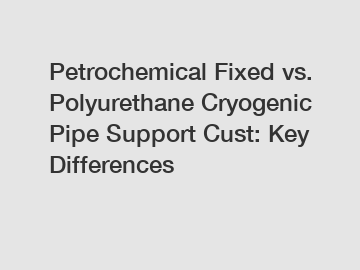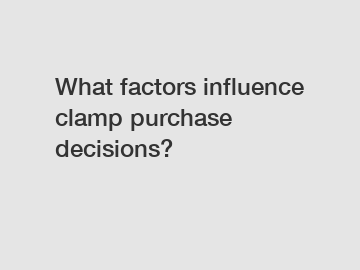What are the advantages and disadvantages of PVC flooring? How to choose?
PVC floor is a new type of lightweight floor decoration material that is very popular in the world today, also known as "lightweight floor material". It is a popular product in Europe, America, Japan and South Korea in Asia.
It has been popular abroad. It has entered the Chinese market since the early 1980s. It has been widely recognized in large and medium-sized cities in China and is widely used, such as homes, hospitals, schools, office buildings, factories, public places, supermarkets, businesses, and other places.
"PVC floor" refers to the floor made of polyvinyl chloride materials. Specifically, it is made of polyvinyl chloride and its copolymer resin as the main raw materials, and fillers, plasticizers, stabilizers, colorants and other auxiliary materials are added. It is produced on a sheet-like continuous substrate through a coating process or by calendering, extrusion or extrusion.
Advantages and Disadvantages of PVC Flooring
Advantages of PVC Flooring
Wear-resistant and pressure-resistant: There is a special wear-resistant layer on the surface, which makes its wear resistance and pressure resistance quite excellent. It is suitable for a variety of places such as home, office, hospital, school, etc.
Environmentally friendly and non-toxic: It uses non-toxic and renewable materials, which will not cause any harm to the human body. It is a green and environmentally friendly material.
Waterproof and anti-slip: It has waterproof and anti-slip properties, especially suitable for indoor and outdoor places that require waterproof and anti-slip.
Antibacterial and mildew-proof: The surface has been specially treated with antibacterial and mildew-proof functions, which is very suitable for places that require high cleanliness such as hospitals and food factories.
Easy installation: The installation is relatively simple and does not require complicated construction technology, which can greatly save installation time and cost.
Disadvantages of PVC flooring
Hard texture: Compared with solid wood flooring or composite flooring, PVC flooring is relatively hard and may not feel comfortable enough.
Single color: There are relatively few colors and styles, which may not meet the personalized needs of some people for flooring.
See also:All You Need to Know About Construction Road Mats
How to Choose Aluminum Coil for Theaters?
Aluminum Coil in Theaters: Benefits & Best Practices Explained
4 Tips to Select an Aluminum Coil for Exterior Cladding
How Aluminum Coils Revolutionize Modern Architectural Design?
Key Considerations to Remember When Choosing OEM Aluminum Coil Color Coated
PVDF Coated Aluminum Coil vs. Standard Aluminum: Key Differences
Afraid of cigarette burns and sharp scratches: The surface is relatively fragile and easily damaged by cigarette burns and sharp scratches.
Poor fire resistance: Some PVC floors that do not meet the quality standards may have poor fire resistance, and it is necessary to pay attention to choosing products that meet national standards.
For outdoor PVC flooring, its advantages are similar to those of PVC flooring used indoors, but additional factors may need to be considered, such as weather resistance and UV resistance. In terms of disadvantages, outdoor use may face more challenges, such as stricter fire protection requirements and more complex maintenance requirements. When selecting and using PVC flooring, it should be weighed according to the specific use environment and needs.
Is PVC floor suitable for home use?
I personally do not recommend laying PVC floor in the home, because although PVC material itself is environmentally friendly, PVC floor will use a lot of urea-formaldehyde resin in the adhesive. At high temperature, formaldehyde volatilization will affect human health. Moreover, the installation of PVC floor requires a flat ground, and it is best to do self-leveling. In the field of domestic home improvement, self-leveling is not a very common demand, and not every worker can do it.
How to clean PVC floor
1. Dry mopping
Remove dust and dirt from PVC plastic floor, using dry or wet yarn, microfiber or other available dry mop.
2. Vacuum cleaning
Use a vacuum cleaner to remove dust and loose dirt on PVC plastic floor. In areas where operation is restricted, this cleaning method can be used instead of mopping.
3. Slightly wet mopping
The mop should be slightly moistened with water or detergent first, and the method is to squeeze out the excess water from the mop with a special cleaning winch, and you can also spray water or detergent on the mop. Be careful not to allow water to accumulate on the PVC floor. The floor must be completely dry within 15-20 seconds after wiping.
4. Multifunctional floor scrubber
For areas with heavy cleaning tasks, it is recommended to use a multifunctional floor scrubber, which can scrub the floor and collect the dirty water in one cleaning step. In addition, brushes and cleaning pads can be used to complete the cleaning work.
Spring Hanger Support ODM: Boost Your Efficiency
10 Facts You Should Know about Custom Length Aluminum Coil
How to Choose Spring Hanger Pipe Support Solutions
3105 Painted Aluminum Coil vs. Traditional Aluminum: Key Differences Explained
Benefits of Electroplated Aluminum Coil for Industry
How can acrylic coated aluminum coils enhance durability and aesthetics?
Transform Your Space: Premium Wood Grain Color Aluminum Coil
None
None
Related Articles











Comments